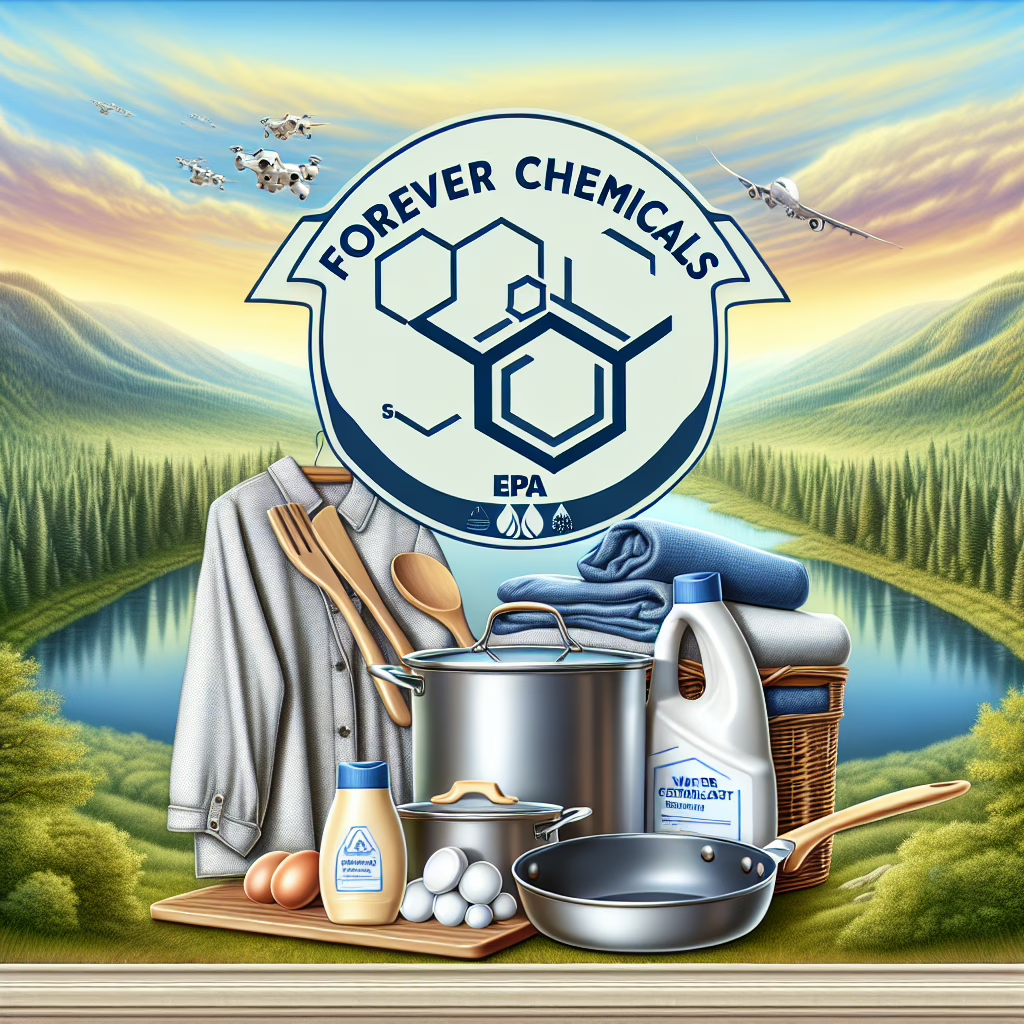In a world where we’re constantly battling the latest environmental buzzwords, the term “forever chemicals” might just take the cake. These persistent pollutants, scientifically known as PFAS (per- and polyfluoroalkyl substances), have been making headlines for their long-lasting effects on both our health and our beloved planet. Yet, in a surprising twist, the EPA is giving some of these cheeky chemicals a free pass. Buckle up as we dive into the wacky world of regulatory decisions and what they mean for you!
The Curious Case of Forever Chemicals
First off, let’s understand what these forever chemicals are really about. PFAS are a group of over 4,700 synthetic compounds used in everything from non-stick cookware to water-repellent clothing. They’re like that friend who overstays their welcome—no matter how hard you try to get rid of them, they just keep hanging around! These chemicals have been linked to various health issues, including cancer and liver damage, yet here we are, still allowing some of them to linger.
What’s the EPA Thinking?
Recently, the EPA decided to give a few PFAS compounds a break from regulation, which has left many scratching their heads. One could argue that this is akin to letting your kid eat candy for dinner while telling them it’s “just a phase.” The agency claims that they are focusing on more harmful variants, but one can’t help but wonder if they’re just trying to keep things simple—perhaps too simple!
This decision sparked debates among environmentalists and public health advocates. While some argue that this approach allows for more streamlined regulations, others worry it might be akin to putting a band-aid on a gaping wound. After all, if these chemicals are so notorious for sticking around, shouldn’t we be more vigilant about their use?
Health Impacts of Forever Chemicals
PFAS exposure is no laughing matter. Studies have shown that these chemicals can accumulate in the human body over time, leading to serious health consequences. Think of it as building up an immunity to bad food choices—you might feel fine at first, but eventually, your body will protest loudly.
From increased cholesterol levels to weakened immune responses, the health risks associated with PFAS read like a horror movie script. Some studies even suggest links between PFAS exposure and developmental issues in children. This means that when it comes to forever chemicals, ignorance isn’t bliss; it’s just plain risky.
The Regulatory Roller Coaster
Now let’s talk about regulation—or should I say the lack thereof? The EPA’s decision seems to have sparked more questions than answers. Why do some PFAS get a golden ticket while others face stricter scrutiny? It’s like playing favorites in school; nobody likes it when the teacher gives extra credit to certain students while others are left scrambling for their grades.
As consumers become more aware of what’s lurking in their products (thanks to social media and the ever-watchful eye of environmental activists), there’s mounting pressure on companies and regulators alike to act responsibly. If we want clean air and water—things that should be basic rights—then we need transparency in how these forever chemicals are handled.
The Future: What Can We Do?
So where do we go from here? Navigating this murky waterscape might seem overwhelming, but there are proactive steps we can take:
- Stay Informed: Knowledge is power! Keep an eye on product labels and avoid items known to contain PFAS whenever possible.
- Advocate: Join local groups pushing for stronger regulations on forever chemicals. The louder our voices, the harder it becomes for policymakers to ignore.
- Support Alternatives: Look for eco-friendly products that don’t use PFAS in their manufacturing process. It’s a win-win for you and the planet!
This issue isn’t going away anytime soon, so let’s not brush it under the rug like last week’s leftovers! The conversation around forever chemicals must continue if we want healthier lives and a cleaner environment.
In conclusion, while the EPA may have given some PFAS compounds a break, that doesn’t mean we should turn a blind eye. Let’s stay vigilant and advocate for comprehensive policies that prioritize our health over convenience. And hey, feel free to share your thoughts below—after all, who doesn’t enjoy a good debate over environmental policies?
Special thanks to Wired for shedding light on this important topic!

